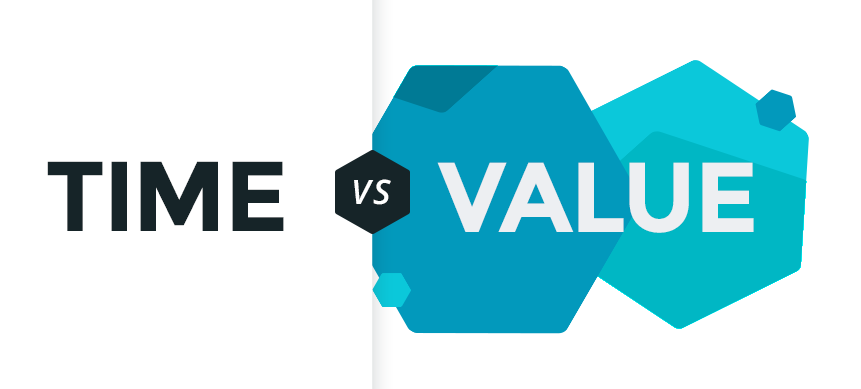People get a little weird when it comes to talking about money. It can be awkward to talk about how much you make, what you charge, which clients pay well and which ones don’t.
But when freelancing is your career, you have to know how much your work is worth. You not only have to decide what you will charge for your services, but also how to do it.
When I talk to people who are new to freelancing, they usually want to know what to charge for an hourly rate. Although hourly rates are great for certain circumstances (more on those below), working by project is a much better deal. Plus, working by project doesn’t just benefit you — it’s also better for the clients you serve.
Today, I’m sharing why working by project is better than by hour.
 Clients pay for the value, not the time
Clients pay for the value, not the time
Clients hire you because they want your expertise. They need a great writer to help them out. They know you have knowledge and skills, and they’re willing to pay to have you on board.
But when you charge an hourly rate, clients pay for your time, rather than the value you provide. Rather than focusing on the asset you help create, the focus is on how much time it takes you to complete something.
Speed is rewarded, not punished
I’m an efficient writer, faster than most freelancers I’ve worked with. If I charged the same hourly rate as someone who wrote similar quality but at a slower pace, I’d earn less than they would. In this scenario, I’d be punished for being efficient.
When you charge a project rate, you should factor in how much time it will take you to complete the project. However, if you finish the project faster than you expected, or are simply an efficient worker, you shouldn’t make less money.
Allows you to set the structure

When a client comes to me with a new idea for a project, I like to be in the driver’s seat as much as possible. I want to have control over deadlines, project structure and payment schedule.
When I charge a project rate, I can set guidelines for what will be included in the project. For example, I always include one round of edits and revisions in my project rate. I encourage clients to make suggestions once when I complete a marketing asset, so we don’t go back and forth wasting time.
Hourly rates limit earning potential
As you gain more expertise, you’ll be able to complete projects faster with less research and hand-wringing, especially if you specialize in a certain industry.
But if you charge an hourly rate, you’re likely to hit a glass ceiling pretty fast. That’s because it’s all about perception.
For example, if you charge $300 for a blog post that takes you an hour to write, that’s going to look like $300 per hour to the client, a high hourly rate. However, if you tell your client that the blog post will cost $300 without sharing how much time it will take you, they’ll be more inclined to think your rates are reasonable.
When you should consider hourly rates
Although I advocate for charging by project, there are times when hourly rates work better. Here are some times when you should consider an hourly rate:
- When the project is iterative. If a client requires a lot of back and forth, you might consider an hourly rate. I often charge a project rate, but then charge an hourly rate for additional revisions.
- When the client doesn’t know what they want. An hourly rate works well when a client isn’t sure what they want, and is relying on you to have multiple meetings to figure out how to move forward.
- When the client is held to an “hourly” system. In certain organizations, clients have to use hourly rates for contract workers. If this is the case, you can usually break down the project rate into an hourly one for billing purposes.
- When you’re working in the office. If you go into a client’s office once, twice or three times per week, it’s reasonable to charge an hourly rate. This is more like being a consultant rather than being a freelancer.



